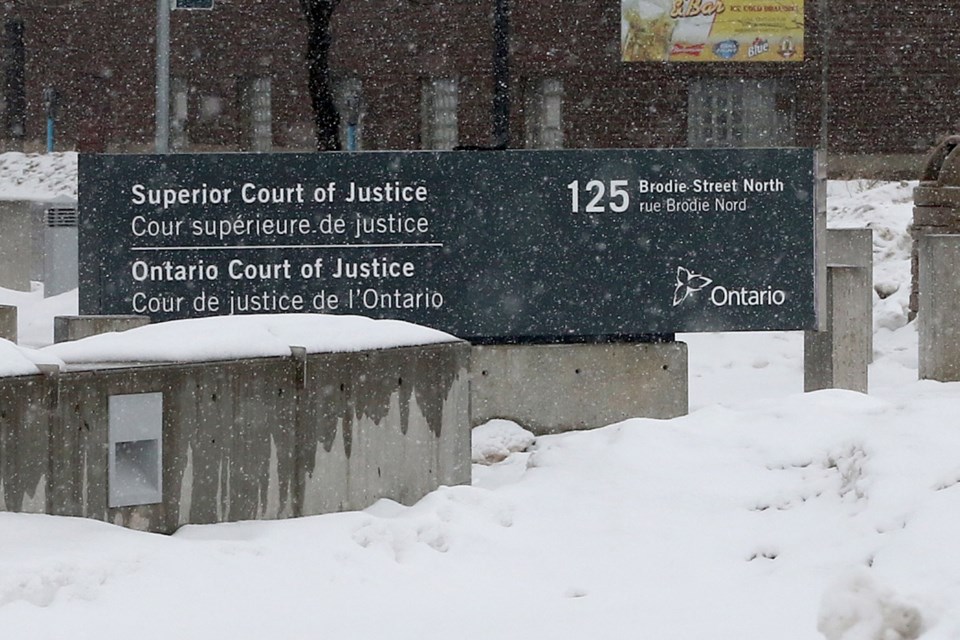THUNDER BAY -- A Thunder Bay resident who created more than 1,000 3D computer generated and animated images and videos consistent with child pornography has been sentenced to 15 months - but will not be required to register with the Sexual Offender Information Registration Act.
Adam McDonald, 37, appeared in a Thunder Bay courtroom on Monday before Justice Vince Scaramuzza for sentencing. McDonald, who identifies as transgender, previously pleaded guilty to one count of making child pornography.
According to an agreed statement of facts, investigators with the Thunder Bay Police Service cybercrime unit received a tip from the National Centre for Missing and Exploited Children regarding a local internet user’s online activity.
A search warrant was executed at a Kenwood Avenue residence where a computer, smartphone, and several electronic storage devices were seized. The seized items were identified as belonging to McDonald, who was arrested on Aug. 13, 2021.
An analysis of the devices uncovered 1,083 files, 1,018 of which were photos, and 294 videos.
The vast majority of the images and videos were computer generated or drawn by McDonald and depicted persons under the age of 18 performing sexual acts, while approximately 20 images consisted of real-life victims of child pornography, including some as young as toddlers.
McDonald created and made available the images online and generated very limited financial gain.
A joint submission by defence counsel and the Crown was presented to Scaramuzza, calling for a custodial sentence of 15 months to be followed by two years probation.
However, the defence and Crown differed on whether McDonald should be required to register with the Sexual Offender Information Registration Act, or SOIRA.
The Crown was seeking a SOIRA order for 20 years, while defence counsel Kate Brindley, referencing recent legislation that allows courts to not issue the order if certain circumstances are met, argued the order is not warranted in this case.
Brindley argued McDonald comes before the court with no previous criminal record, has expressed remorse for her actions, is at low risk to reoffend, and has been undergoing counselling and therapy to address issues of pornography addiction.
Brindley argued further that this case adheres to the new legalization, which references courts can choose not to issue the SOIRA order if doing so would not hinder future police investigations into similar crimes.
When given the opportunity to speak, McDonald apologized for her actions and said getting arrested was both the worst and best day of her life, because it allowed her to seek treatment and counselling that she hopes to continue.
Scaramuzza agreed with the joint submission of 15 months in custody to be followed by two years probation. McDonald will also be required to submit a DNA sample and will have certain restrictions on her use of the internet for five years, including not using any kind of encryption software or devices.
With respect to the SOIRA order, Scaramuzza ruled that the defence had met its onus and no SOIRA order was issued.
Scaramuzza cited McDonald’s low risk to reoffend, her expressions of remorse, lack of a criminal record, and her denial in a psychiatric assessment of having any sexual attraction to children and creating the images as a way of raising her self-esteem in an online community.
All remaining charges were marked withdrawn at the request of the Crown.
